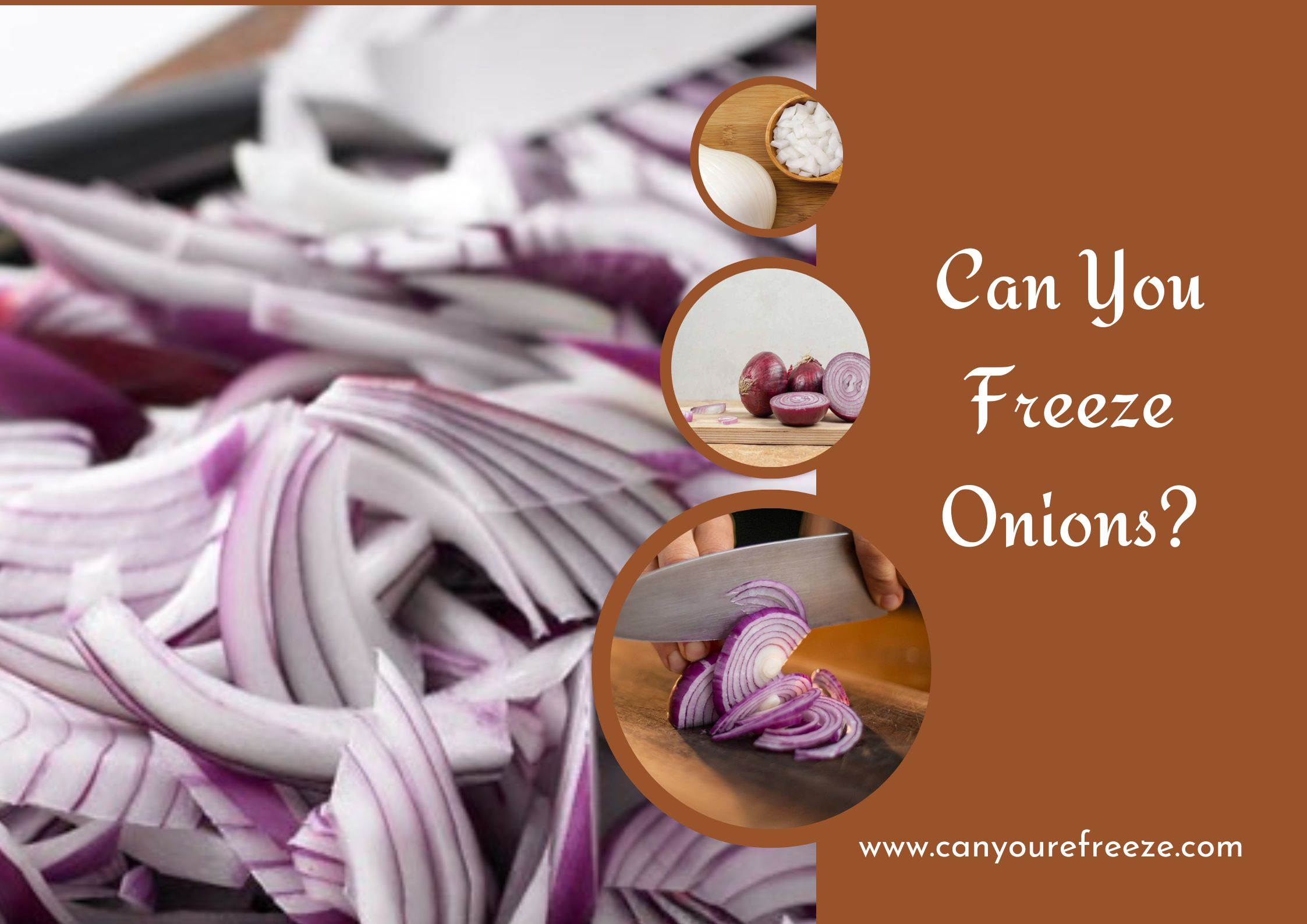Can You Freeze Onions?
If you prefer utilizing fresh onions in your cooking but frequently tossing any leftovers away, try freezing them. Use frozen onions in ready meals like soups, stews, casseroles, and recipes with ground beef. When utilizing frozen onions, most dishes don’t need much or any thawing.
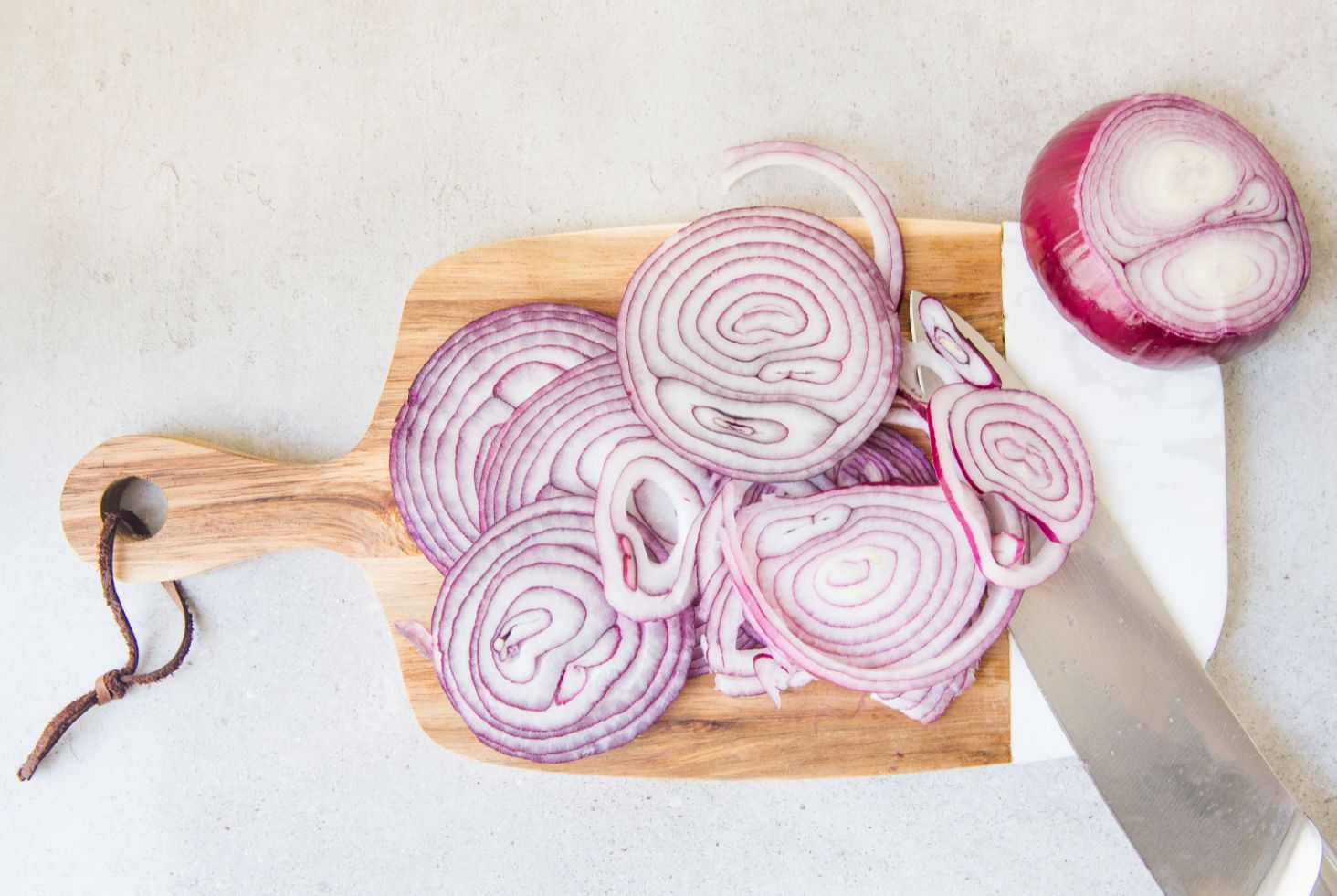
Why Freeze Onions?
Why bother freezing onions if they keep well for weeks, you may be asking. It seems strange, but there are two excellent arguments in support of freezing onions.
1. When You Don’t Have Ideal Storage Space, Freezing is Perfect
Your storage strategy might not be the best if your onions frequently sprout, go mushy, turn black, develop mold, or taste strange.
Although onions might be tricky to keep. Experts advise keeping it between 4 and 10 degrees Celsius (40 and 50 degrees Fahrenheit), which is warmer than your freezer but cooler than room temperature. If onions are stored in too warm, too chilly, or too humid circumstances, they may sprout, grow mold, or get mushy. They don’t appreciate being kept next to potatoes either since the natural gasses those plants produce make onions sprout more rapidly and likewise.
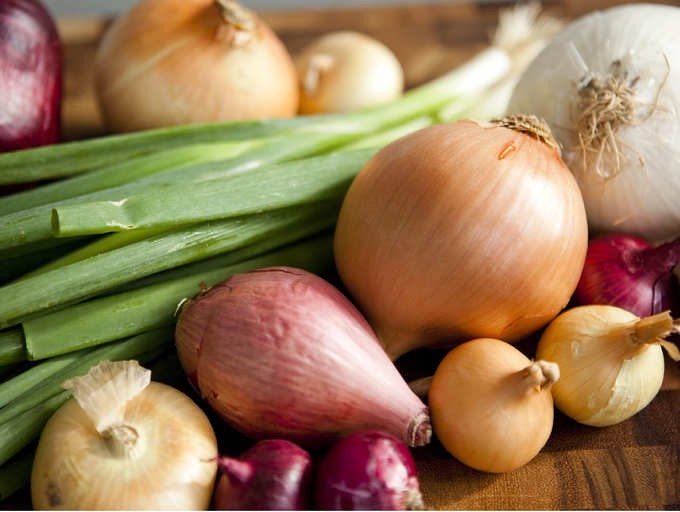
So you see, picking the appropriate location may be challenging.
Dehydration or freezing are therefore viable alternatives. Naturally, mouth-watering dishes like French onion soup, caramelized onions over focaccia, and sautéed onions and mushrooms are also great.
2. It Saves Time In A Convenient Way
If you frequently cook, you will be aware that 90 percent of the total recipes call for diced, chopped, or sliced onions. Do you have any idea how useful having pre-sliced or chopped onions can be? It does save time.
No regular cutting is necessary. No smell of onions on the fingertips. The cutting board also does not need to be cleaned.
If any of the following applies to you:
- If you lack suitable storage space for them or you detest chopping fresh onions for every meal, think about freezing onions.
- If you detest chopping fresh onions for every meal, think about freezing onions.
- You like the ease of pre-cut meals as well as the satisfaction and savings of making them yourself.
Onion Freezing: A Step-By-Step Guide
1. Cut The Onion
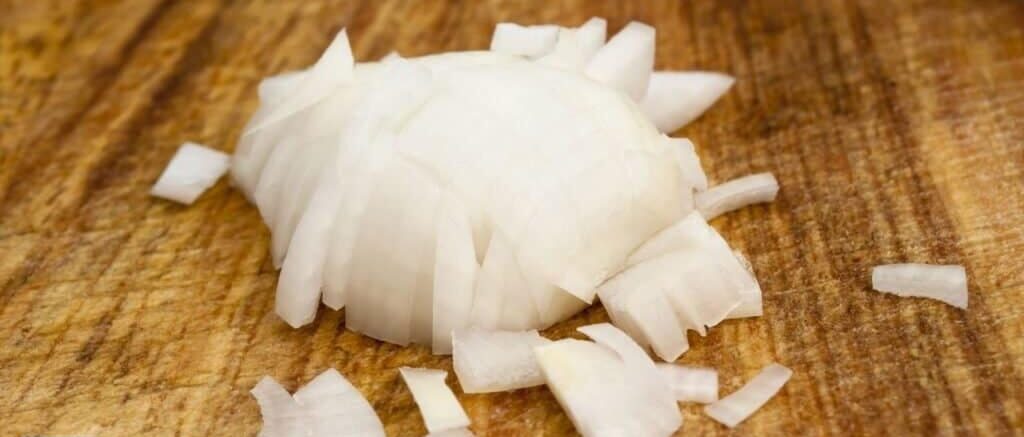
Both dicing and slicing onions work nicely. We advise against freezing whole or cut onions (see FAQs below).
Depending on your preference, use a sharp blade, mandolin, or food processor for large amounts. You can also use the ordinary chopping blade for dicing onions and the slicing blade for slicing onions.
Pro tip: To prevent turning your onions into a liquid mush, only pulse your food processor a few times when using chopped onions. If you do not wish to process them for an extended period.
2. Insert Into A Freezer Bag
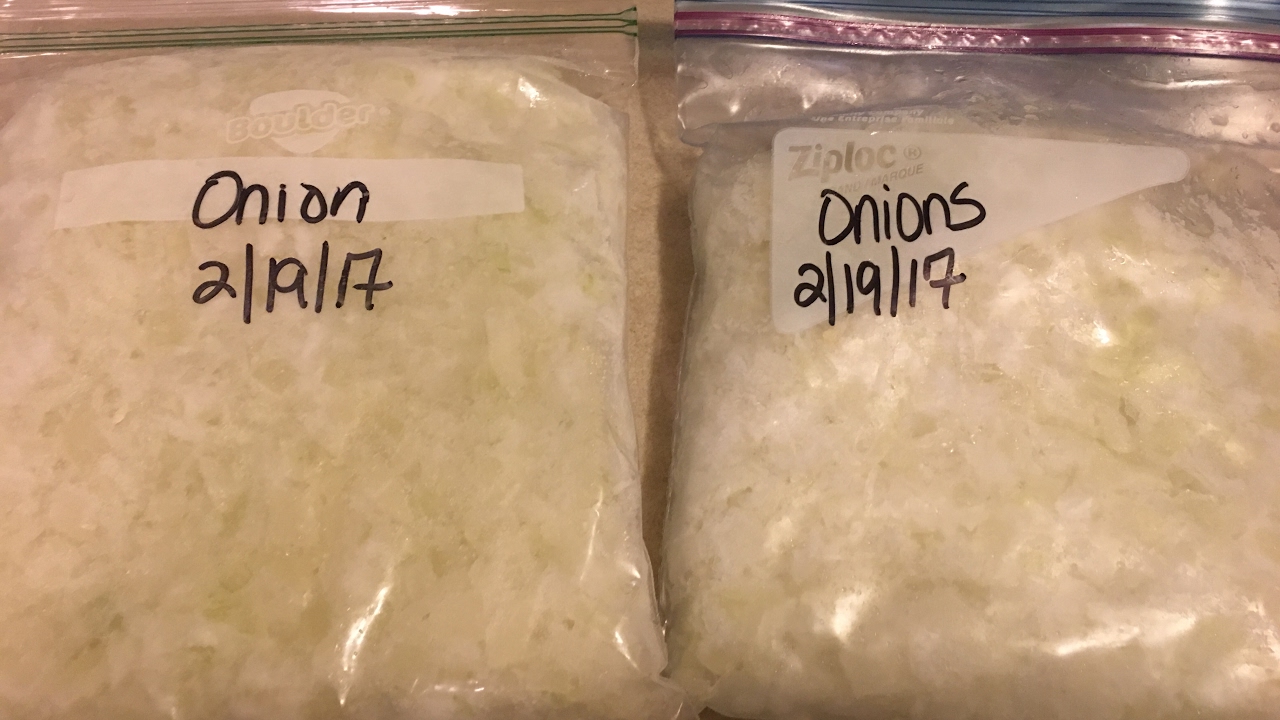
The secret to successfully freezing onions is to thoroughly seal them in an excellent bag or container that will prevent any stench. You should use freezer-grade plastic bags that are thicker than the all-purpose variety.
Avoid the freezer burner and create as little headroom as possible, expel as much air as you can.
Additionally, you may want to confirm that using your frozen onions is simple. Since you can easily break off frozen pieces as needed, experts advise either freezing them in pre-measured amounts or a thin layer. It prevents large crumbs of frozen onions.
Here Are Two Techniques For Freezing
Option 1: Place onions in freezer bags and freeze them in a thin layer.
Although this isn’t quite a single layer of onions, it is thin enough for me to cut off chunks with ease. I often freeze onions in this manner. You can fill a freezer bag with an arbitrary number of onions and squish it down to a very thin layer. You carefully shut the bag after squeezing out as much air as you can.
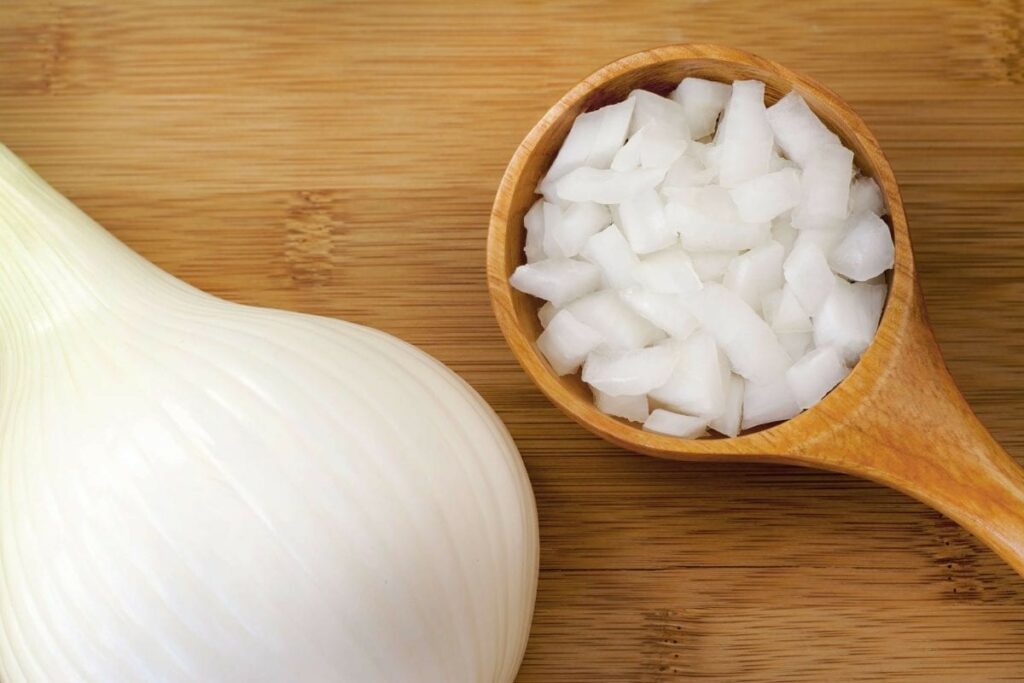
You can easily cut off a piece of an onion when it freezes. Although there is seldom a precise measurement, the majority of recipes are rather forgiving when it comes to onions. Normally, you break off just enough to cover the bottom of my cooking pot. Depending on whether you may choose to add more or less.
Option 2: Pre-measured quantities of freezing
Adhere to the standard onion measurement formula. Diced onions from 1 medium onion equals 1 cup. Therefore, freeze mounds of half or full cups that are spread out on waxed paper, parchment paper, or plastic wrap. Wrap each bundle, then stack them inside a big freezer bag. Once sealed, freeze.
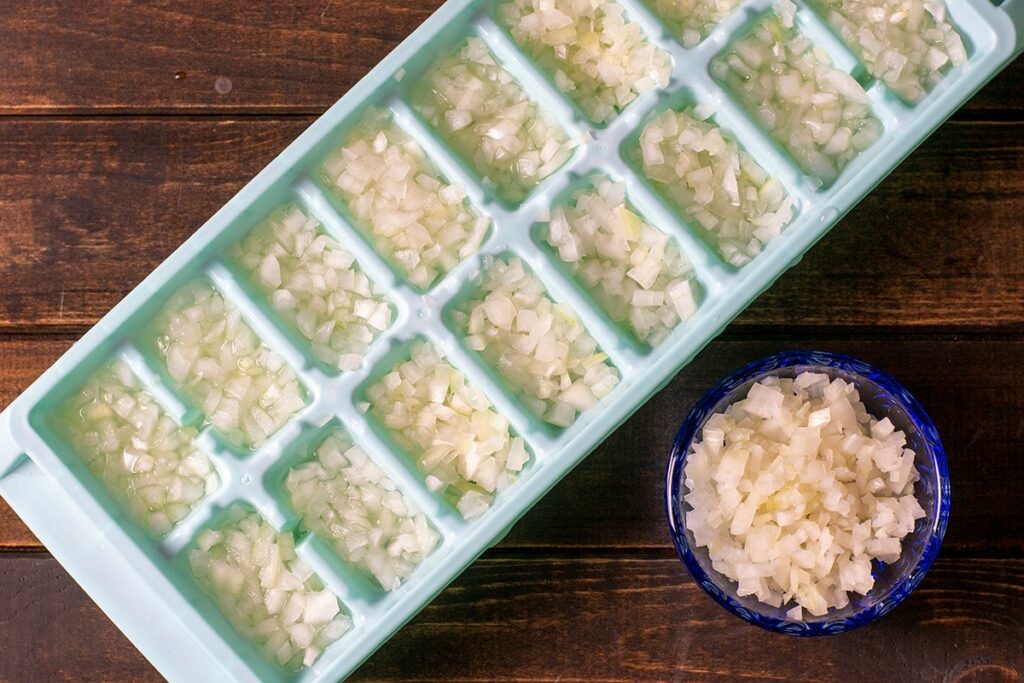
The onions can also be frozen in ice cube trays. If you don’t want an onion smell in your freezer, just make sure to put the trays in a bag before freezing. Before using the tray for ice cubes again, soak this in baking soda and vinegar. This seems like a lot of hassle; you should prefer to just freeze the onions in packages as described in Option 1.
Option 3: Freeze and Seal
Seal the container, then freeze it for up to 3 months. They will begin to acquire off tastes if you keep them in storage for too long. They won’t spoil or become harmful; they’ll only taste more potent.
When placing the bags in the refrigerator to freeze, keep them flat.
Putting Food In Freezer Bags
These are suitable freezer containers:
- Plastic bags for freezers
- Ice cream paper
- Aluminum foil
- Packaging made of plastic bearing the snowflake sign
Unless they are coated with a freezer bag or wrap, the following containers are not recommended for long-term freezer storage:
- Plastic bags for storing food
- Milk containers
- Cartons of cottage cheese.
- Containers of whipped cream
- Containers of margarine or butter
- Bread or other product bags made of plastic
Do Onions Change After You Freeze Them?
Onions that are frozen will develop a different flavor over time, just like any unblanched vegetable. Their flavor will intensify the longer they are stored in the freezer. Because of this, I only freeze as many onions as I can consume in three months, or around five pounds at a time.
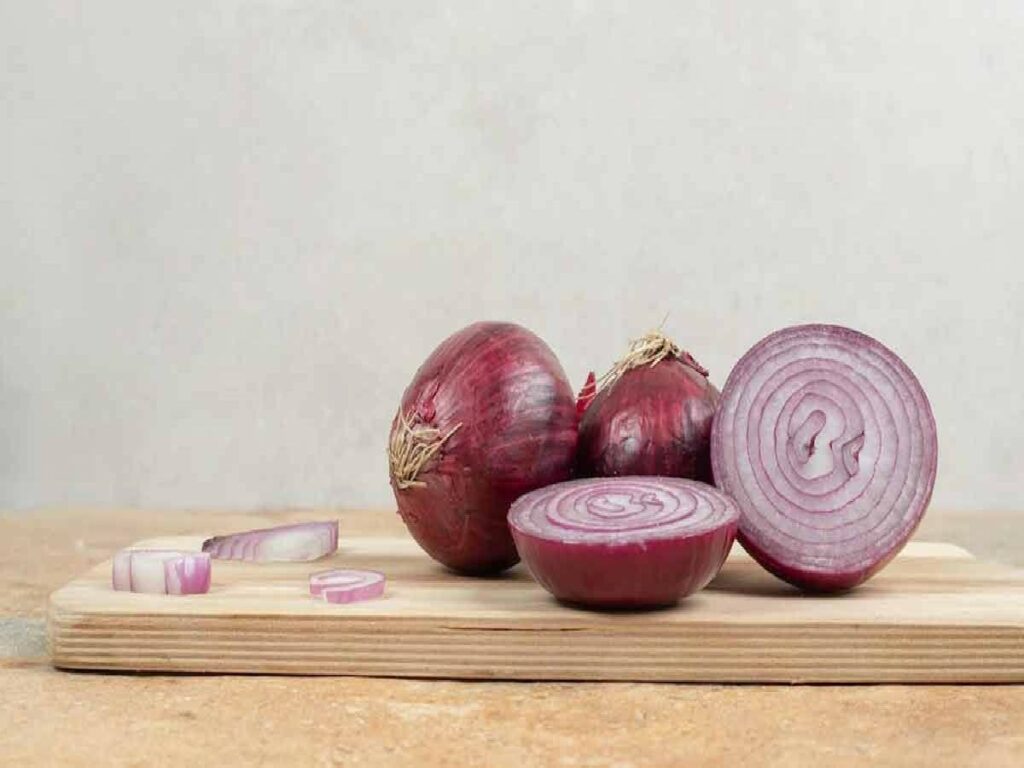
Onions’ texture will also alter; they will lose their crispness and become considerably softer. They won’t work well in fresh dishes like salads or other cooked foods like soups, stews, casseroles, curries, and more, but they’re great in those. When they strike the pan, they will emit a lot of liquid, but it will rapidly evaporate.
Will Your Freezer Have An Onion Smell?
This has never been a problem. Using top-notch freezer bags or tight containers and sealing them tightly is crucial. You may double bag onions or put one bag in an airtight container before putting them in the freezer if you want to take extra precautions.
To prevent onion juices or pieces from adhering to the bags outside, make sure they are clean and dry.
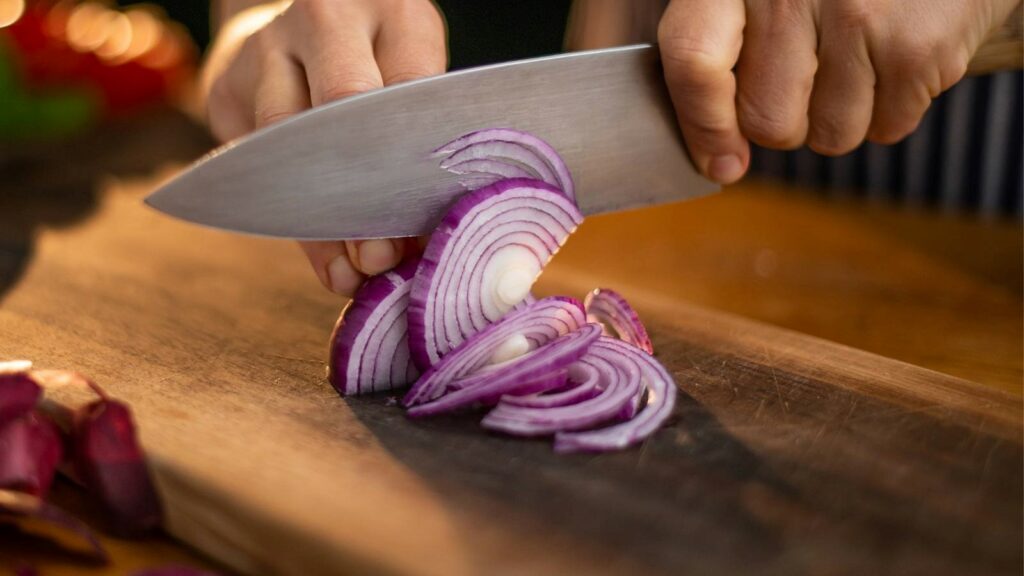
Due to the potential of residual onion stench in the freezer from leaving an open tray of onions in there, even for a few hours, don’t flash freeze or use ice cube trays when freezing onions.
Before Bagging Onions, Can You Flash Freeze Them?
The fragrance is overpowering and persistent. Of course, you may put freshly cut onions on a baking sheet covered with parchment paper if you aren’t worried about the smell of onions in your freezer. To ensure that the onions freeze in separate pieces that you can easily pour from a bag once frozen, try to allow some space in between the onions. Move them to a secure container or bag when they have frozen.
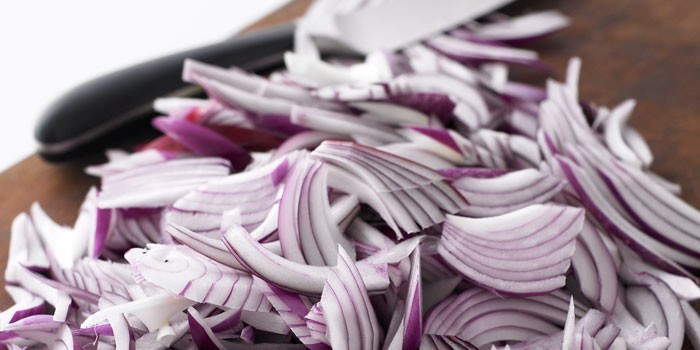
Yes, you can freeze onions. They don’t even need to be blanched or given any kind of pre-treatment. It’s quite simple! Just peel, cut (into slices or dice), and freeze. That was all about freezing onions effectively at home. So the next time you wish to store onions for later use, you know what to do.

